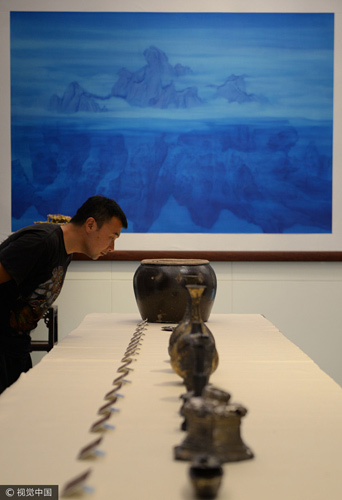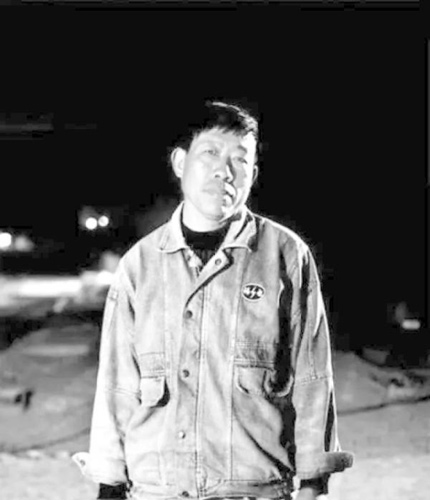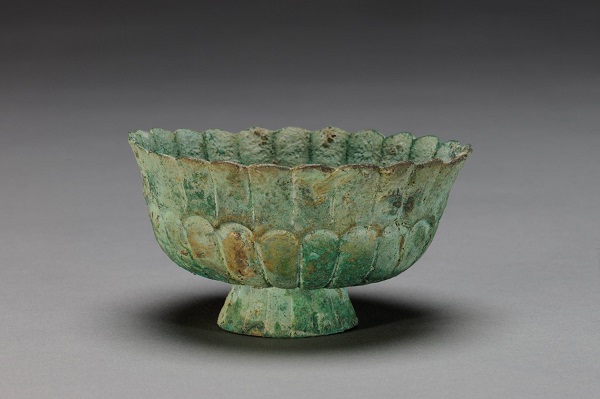
Palace Museum honors farmer who donated rare cultural relics
Ma Chi
A memorial service was held in the Palace Museum in Beijing on Thursday to pay tribute to a farmer who donated rare cultural relics to the museum.

A memorial service was held in the Palace Museum in Beijing on Thursday to pay tribute to a farmer who donated rare cultural relics to the museum, reported thepaper.cn.
He Gang, a 54-year-old native of Guqiang village in Shangshui county, Central China's Henan province, died in an accident on May 30 at a railway construction site.
Back in 1985, He discovered 19 pieces of silverware stored in a tank while digging in a residential groundwork. With the help of the village Party chief, He handed over the 19 artifacts, which date back to Yuan Dynasty (1271-1368), to the Palace Museum.
The silverwares filled the gap in collections from the period, according to the museum.
Liu Hong'en, the then-Party chief of Guqiang village, said after He unearthed the relics, one person offered high prices for the silver wares, but He refused to sell them, insisting that he would give them to the authorities.
"Despite being an ordinary farmer and living a hard-up life, He chose to give the treasures he discovered to the State without hesitation, which is admirable," said Shan Jixiang, the curator of the Palace Museum.
Shan said many rare cultural relics are discovered and protected by ordinary people just like He.

To honor his contributions in cultural relic protection, the museum granted him 8,000 yuan ($1,170) in monetary reward and 1,000 yuan in travel subsidy.
In 2003 when He's family was mired in financial difficulties, the museum raised a fund to help him, said Liang Jinsheng, a former head of cultural relic management at the Palace Museum.
After He died, the museum gave his family members 100,000 yuan in subsidy.
Despite the financial difficulties, He told Zhejiang news outlet zjol.com.cn in a previous report that he never regretted giving the cultural relics to the museum and he would do the same if he discovered new treasures.
According to the museum, China faces the serious problem of illegal excavation and trafficking of cultural relics, but there are no specific regulations on rewarding people who hand over cultural relics to the authorities, which hampers the protection of historical treasures.
The memorial service was held to encourage more people to protect cultural relics, said the museum.
